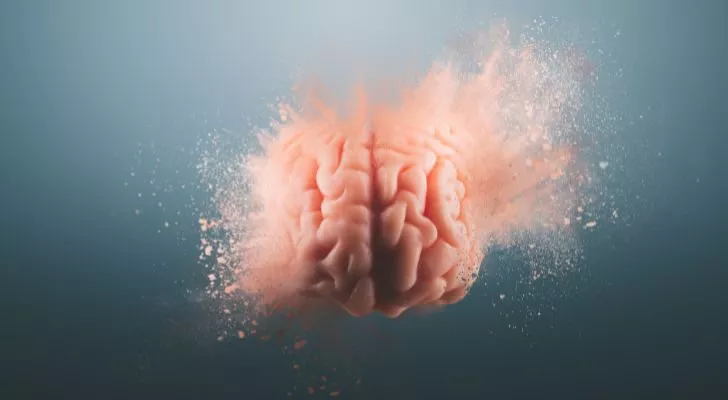Mindfulness is all the rage nowadays, but what actually is it? And why is it so popular?
Well, in this article, you’ll discover the answer to that, along with the origins of mindfulness, how it differs from meditation, and why being too mindful can be detrimental to your health.
With that said, let’s remove all distractions and learn about the many facts of mindfulness!
Who invented the term “mindfulness”?

Mindfulness is a translation from the word sati, which came from ancient India.
In Buddhism, it refers to focusing on the present moment and accepting it without judgment.
In other words, mindfulness revolves around the awareness and acknowledgment of things like your breath, thoughts, and body sensations.
Now, with regards to who coined the term “mindfulness,” the one responsible for that was a Buddhist scholar named T.W. Rhys Davids in 1910.
However, if we’re going to talk about who popularized the word mindfulness, then the credit goes to Jonn Kabat-Zinn’s 2003 Mindfulness-based Stress Reduction (MBSR) program.
Are mindfulness and meditation the same thing?

Writing isn’t the only way to express your thoughts. The same goes for meditating. It’s just one way of practicing mindfulness.
Mindfulness can be done throughout your daily activities, whether while eating or watching a movie.
However, when it comes to meditation, you must set aside some of your time to do it. So, unlike mindfulness, you can’t meditate while doing day-to-day activities.
Why is it important to be mindful?

Besides being more present and improving your concentration, there are plenty more benefits that come with practicing mindfulness.
For example, it can help relieve your stress and improve your mood, which are essential for achieving happiness in life.
And while you may think that it’s just your mental health that benefits from mindfulness, you’ll be surprised to know that it’s beneficial for your physical health, too!
According to researchers, this is because mindfulness can help lower blood pressure, reduce chronic pain, and even improve sleep.
Another reason why mindfulness is important is because it lessens mind-wandering. It’s a common problem we all share that can negatively affect perception and cognitive performance.
It’s worth noting that mind-wandering still has its fair share of advantages – more on this later on!
Can mindfulness change the brain?

The structure of our brain isn’t set in stone, as behaviors, experiences, and thoughts can cause neural pathways to change. This is commonly referred to as neuroplasticity.
Going back to the MBSR program, researchers from a Massachusetts hospital in 2011 used it for eight weeks to study the brain’s differences before and after practicing mindfulness.
Through brain MRIs (magnetic reasoning images), the seminal study showed that being mindful leads to an increase in the gray matter of the hippocampus. When this happens, a person gains better memory and more emotional intelligence.
Other than that, researchers also found that mindfulness decreases the amygdala’s gray matter – it’s a part of the brain associated with stress, fear, and anxiety.
Is mindfulness a skill?

You might think that being mindful isn’t a skill since all you have to do is focus on the present moment, right? But as the saying goes, “It’s easier said than done.”
This can be proven by the fact that fewer and fewer people have the ability to focus on one task, let alone the present moment, due to the digital distractions like social media that surround us today.
So, yes, mindfulness is a skill. And just like other skills, it also takes time before you become good at being mindful.
What is the opposite of mindfulness?

Mindlessness is the opposite of mindfulness, and it isn’t necessarily a bad thing. After all, everything has its own pros and cons, right?
So, mindlessness can be just as helpful as mindfulness. But only if you do it properly.
Doing so involves letting your mind wander during activities that require little to no mental effort, such as brushing your teeth, riding a bike, or washing the dishes.
How mindlessness helps you boils down to the fact that it generates creativity and enhances your ability to plan for the future. That’s why there should be time not only for being mindful but also for being mindless.
This begs the question…
Is too much mindfulness bad for you?

They say that too much of anything is harmful, and mindfulness isn’t an exception. In a scientific context, they call this the Yerkes-Dodson Law.
It states that too little or too much physical or mental arousal can lead to poor performance, meaning there’s an optimum level of arousal needed to achieve the best performance.
So, in the case of mindfulness, its physical and mental health benefits can be detrimental when done in excess. This means too much mindfulness could actually lead to depression, anxiety, and insomnia.
That’s why you’re better off practicing mindfulness for a couple of minutes daily rather than doing it for hours every now and then. Remember, consistency over intensity!
Whether it’s for feeling relaxed after work or being more grateful about your life, mindfulness is one skill worth learning and doing.
Other than meditation, you can incorporate it into other aspects of your daily life. And it only takes a few minutes a day to begin reaping the different advantages of mindfulness.
However, don’t neglect its counterpart, mindlessness, as it provides similar benefits to mindfulness, too.
Finally, remember to keep in mind that you can only do so if you do both correctly and in moderation!


















